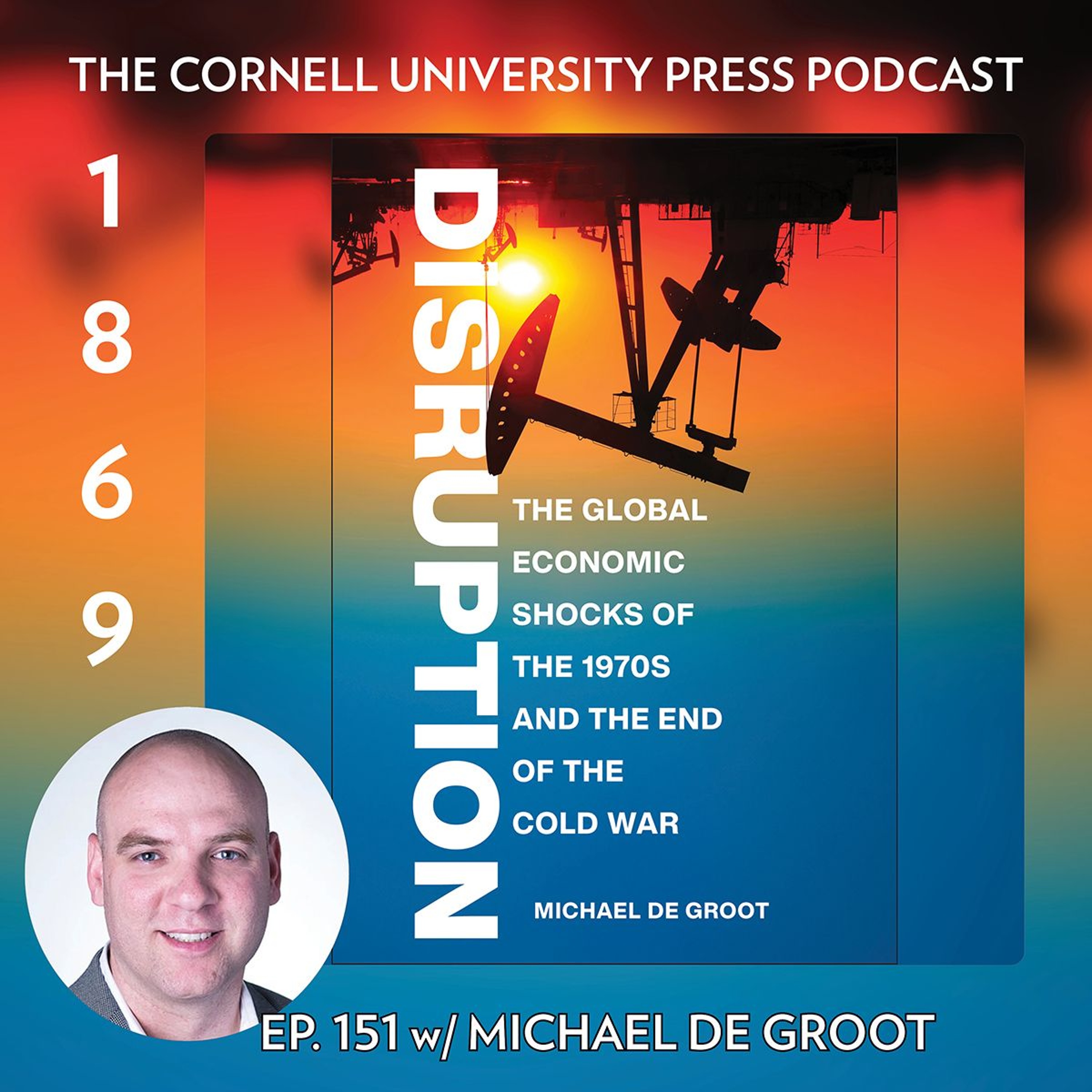Aug 08 2024 27 mins 3
Learn more about Disruption here (and use 09POD to save 30%):
https://www.cornellpress.cornell.edu/book/9781501774119/disruption/#bookTabs=0
Transcript here:
https://otter.ai/u/AYwGHof_RZb3H_x32SO6bo1BjXQ?utm_source=copy_url
In this episode, we speak with Michael De Groot, author of the new book Disruption: The Global Economic Shocks of the 1970s and the End of the Cold War. Michael De Groot is Assistant Professor of International Studies at Indiana University Bloomington where he teaches and researches the international, diplomatic, and economic history of the twentieth century.
We spoke to Michael about his research showing that the global economic upheaval of the 1970s was instrumental in ending the Cold War; how the United States during this time was able to use debt and large trade deficits to its advantage while the Soviet bloc simply could not; and what lessons we can learn from this time period to help us navigate our current troubles today.
https://www.cornellpress.cornell.edu/book/9781501774119/disruption/#bookTabs=0
Transcript here:
https://otter.ai/u/AYwGHof_RZb3H_x32SO6bo1BjXQ?utm_source=copy_url
In this episode, we speak with Michael De Groot, author of the new book Disruption: The Global Economic Shocks of the 1970s and the End of the Cold War. Michael De Groot is Assistant Professor of International Studies at Indiana University Bloomington where he teaches and researches the international, diplomatic, and economic history of the twentieth century.
We spoke to Michael about his research showing that the global economic upheaval of the 1970s was instrumental in ending the Cold War; how the United States during this time was able to use debt and large trade deficits to its advantage while the Soviet bloc simply could not; and what lessons we can learn from this time period to help us navigate our current troubles today.
